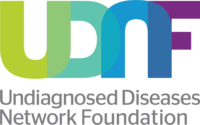22 Dec Congress Funds the UDN for $18M in 2023, but Advocacy Efforts Must Continue
By Adaline Dunnberg | December 22, 2022
Thanks to the tireless efforts of patient advocates and legislators, funding for the Undiagnosed Diseases Network (UDN) will continue through 2023. On December 22, 2022, Congress passed a spending bill for 2023 that includes $18M to fund the UDN, including the coordinating center, all clinical sites, DNA sequencing core, central biorepository, model organisms screening center, and other testing. According to the Senate’s explanatory statement, the Appropriations Committee’s decision allocates an additional $2M above the fiscal year 2021 funding level.
This wonderful news ensures that undiagnosed patients will continue to have access to the multidisciplinary medical team and cutting-edge diagnostic tools that offer hope of a diagnosis and possibility of therapeutic strategies. In just 10 years, the UDN has diagnosed 627 participants who previously exhausted all diagnostic options. With an additional 1,830 patients waiting for a diagnosis, the UDN must continue.
Prior to the passage of the 2023 funding bill, stakeholders feared for the immediate future of the UDN. The National Institutes of Health (NIH) Common Fund support for the UDN is set to end in June 2023 after reaching the 10-year funding limit. Despite extensive planning efforts, the UDN has not achieved the Common Fund’s aim of transitioning “to a larger, self-sustained network.”
To support this transition, the NIH agreed to supplementing and extending components of the UDN with a $5M grant to the Coordinating Center, a fraction of the annual cost to operate the entire network. Annual funding for the UDN started at $10M in 2013, grew to $30M at its peak, and tapered to $16M in 2022. The NIH also offered clinical sites the opportunity to apply for designation as a Diagnostic Center of Excellence enabling access to the Data Management and Coordinating Center.
The combination of congressional funding for the UDN and NIH’s sustainability efforts makes us optimistic for 2023. However, the future of the UDN is still not guaranteed. Patients, families, providers, and researchers must continue to advocate for funding in 2024. Tell your legislators what the UDN means to you by registering for EveryLife Foundation’s Rare Disease Week on Capitol Hill from February 28th through March 2nd and make your voice heard!



